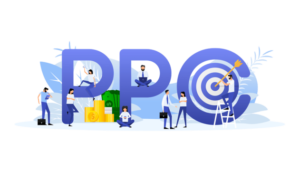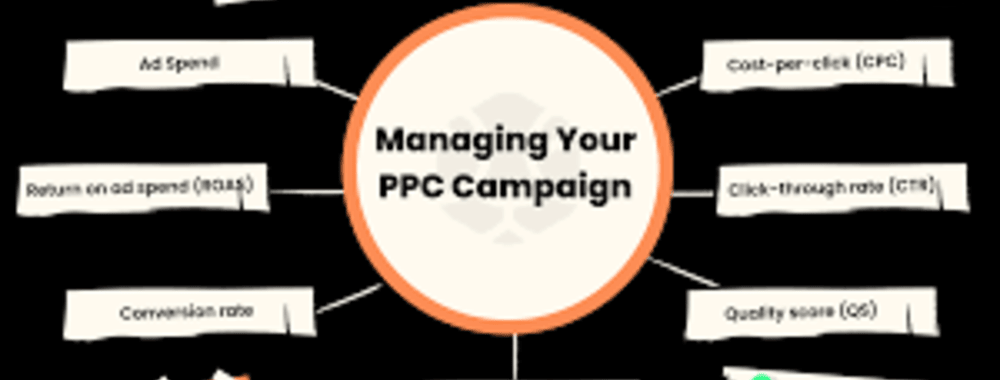Pay-per-click (PPC) advertising is one of the most effective digital marketing strategies for driving targeted traffic, generating leads, and increasing conversions. However, setting up a high-converting PPC campaign requires careful planning, execution, and optimization. In this guide, we’ll take you through each step of the process to ensure your PPC campaign delivers the best return on investment (ROI).
1. Define Your Campaign Goals
The first and most crucial step in setting up a successful PPC campaign is defining clear goals. Your campaign objectives will determine everything from keyword selection to ad creatives and bidding strategies
Driving Sales: Encouraging users to complete a purchase.
Increasing Website Traffic: Boosting the number of visitors to your site.
By setting specific, measurable, achievable, relevant, and time-bound (SMART) goals, you’ll be better equipped to evaluate your campaign’s success.
2. Conduct In-Depth Keyword Research
How to Find the Best Keywords:
Use Keyword Research Tools: Leverage tools like Google Keyword Planner, Ahrefs, and SEMrush to identify high-intent keywords.
Analyze Competitors: Research which keywords your competitors are targeting and identify gaps you can exploit.
Focus on Long-Tail Keywords: These keywords are more specific and often have lower competition, leading to higher conversion rates.
Use Negative Keywords: Filtering out irrelevant searches prevents wasted ad spend and improves ad relevance.
A well-structured keyword list should include a mix of exact match, phrase match, and broad match modifiers for the best results.
3. Choose the Right PPC Advertising Platform
There are multiple PPC advertising platforms available, each with its own strengths:
Google Ads: The most popular platform for search and display advertising, ideal for capturing high-intent search traffic.
Facebook Ads: Best for audience-based targeting, allowing you to reach users based on interests, demographics, and behaviors.
LinkedIn Ads: A great option for B2B businesses looking to target professionals.
Microsoft Ads (Bing Ads): A less competitive but valuable alternative to Google Ads.
Amazon Advertising: Suitable for e-commerce brands selling products on Amazon.
Select the platform that best aligns with your business objectives and target audience.
4. Create High-Quality Ad Copy
Your ad copy is what convinces users to click on your ad, so it needs to be compelling, relevant, and action-driven.
Tips for Writing Effective PPC Ad Copy:
Use Attention-Grabbing Headlines: Highlight your unique value proposition.
Incorporate Keywords: Improve ad relevance by including targeted keywords in your copy.
Add a Clear Call-to-Action (CTA): Encourage users to take the desired action (e.g., “Sign Up Today,” “Get a Free Quote”).
Leverage Ad Extensions: Use site links, callout extensions, and structured snippets to provide more information and increase CTR.
Example of a High-Converting PPC Ad:
Headline: “Boost Sales with Targeted PPC Ads!”
Description: “Struggling to get leads? Our expert PPC strategies drive real results. Get a free consultation today!”
CTA: “Start Now”
5. Optimize Your Landing Page for Conversions
A high-converting landing page is essential to maximize the effectiveness of your PPC campaign. If your landing page isn’t optimized, you’ll lose potential customers even if your ad attracts clicks.
Key Elements of a High-Converting Landing Page:
Clear and Relevant Headline: Ensure it aligns with the ad message.
Fast Loading Speed: A slow page can lead to higher bounce rates.
Mobile Optimization: Your page must be responsive on all devices.
Social Proof: Include testimonials, reviews, and trust signals to build credibility.
6. Set Up Conversion Tracking
To measure the effectiveness of your PPC campaign, it’s crucial to set up conversion tracking.
How to Track PPC Conversions:
Google Analytics: Monitor user behavior and track goal completions.
Google Ads Conversion Tracking: Measure specific actions like form submissions and purchases.
Facebook Pixel: Track interactions for retargeting campaigns.
UTM Parameters: Use unique tracking codes to analyze campaign performance in analytics tools.
7. Implement a Smart Bidding Strategy
Your bidding strategy plays a significant role in determining your ad’s placement and cost.
Manual CPC: Provides full control over bid amounts.
Maximize Conversions: Uses AI to optimize for the highest number of conversions.
8. Continuously Monitor and Optimize Your Campaign
Continuous monitoring and optimization are essential for sustained success.
Key Optimization Strategies:
A/B Test Ads: Experiment with different headlines, descriptions, and CTAs.
Refine Keywords: Regularly update your keyword list to improve targeting.
Adjust Bids: Increase bids for high-performing keywords and lower them for underperforming ones.
Monitor Quality Score: Improve relevance by optimizing ad copy and landing pages.
9. Utilize Remarketing for Higher Conversions
Remarketing allows you to re-engage users who previously interacted with your website but didn’t convert.
Effective Remarketing Strategies:
Target Cart Abandoners: Encourage users to complete their purchase.
Showcase Special Offers: Use discounts to entice returning visitors.
Segment Audiences: Create tailored ad messages based on user behavior.
10. Scale and Expand Successful Campaigns
Once you’ve identified a winning PPC campaign, consider scaling it to maximize growth.
Ways to Scale a PPC Campaign:
Increase Budget: Gradually allocate more funds to high-performing ads.
Expand Keyword Targeting: Add new keyword variations and related terms.
Test Different Ad Formats: Try video ads, display a
Expand to Additional Platforms: Explore opportunities on other PPC networks.
Final Thoughts
A high-converting PPC campaign requires careful planning, continuous optimization, and a data-driven approach. By defining clear goals, selecting the right keywords, crafting compelling ad copy, optimizing your landing page, and monitoring performance, you can create a campaign that drives significant results.
Start small, test different strategies, and refine your campaigns based on performance insights. With the right approach, PPC advertising can be one of the most powerful tools for growing your business online.
